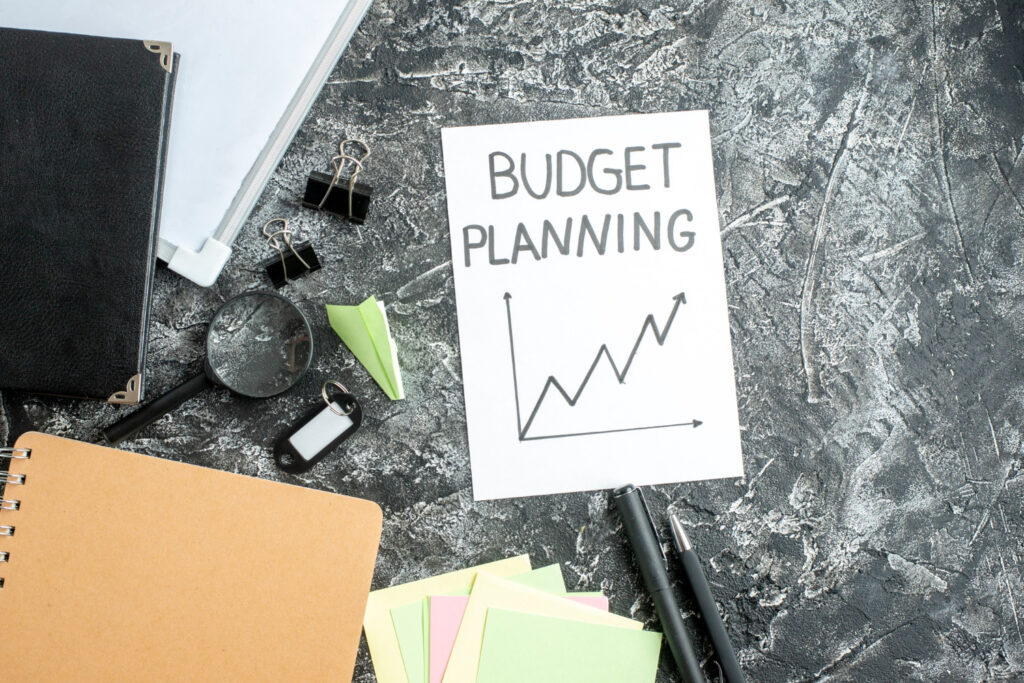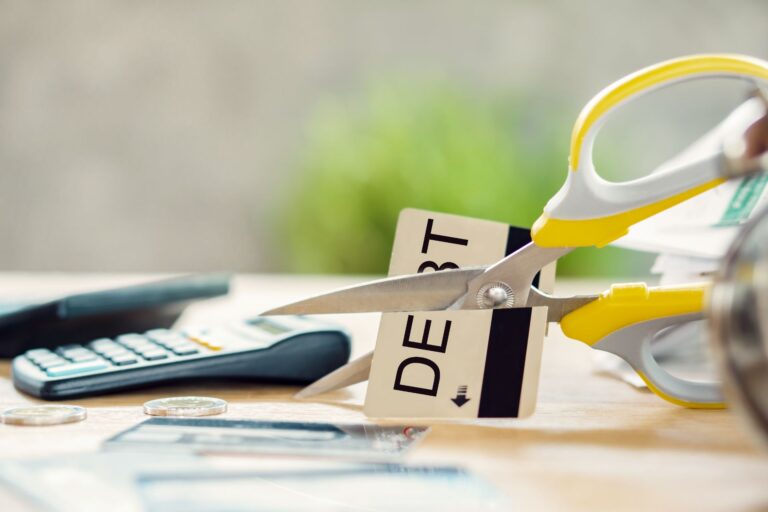How To Stop Spending Money On Unnecessary Things

You just checked your bank account, and you’re sitting there wondering where all your money went. Again. You got paid two weeks ago, and somehow your checking account looks like a desert. Sound familiar?
I’ve been there, friend. That sinking feeling when you realize you’ve blown through your paycheck on stuff you can’t even remember buying. It’s frustrating, embarrassing, and honestly, it feels like you’re stuck in a loop you can’t escape.
But here’s the good news: learning how to stop spending money unnecessarily isn’t rocket science. It’s actually way simpler than you think. You just need the right strategies and a bit of self-awareness.
I’m going to walk you through everything I learned when I finally got my spending under control, and trust me, if I can do it, so can you.
What Are The Things You Should Stop Spending Money On?
Before we get into the how, let’s talk about the what. What counts as unnecessary spending?
Simply put, it’s anything that doesn’t fall into your core needs. I’m talking about your rent or mortgage, utilities, groceries, transportation to work, and other must-haves that keep your life running. Everything else? That’s where you need to start questioning yourself.
Those monthly subscriptions you forgot you signed up for? Unnecessary. That third streaming service you watch maybe once a month? Probably unnecessary. Eating out four times a week when you have food at home? Definitely unnecessary.
Now, I’m not saying you should live like a monk and never enjoy anything. But when you’re trying to figure out how to stop spending money unnecessarily, you need to be brutally honest about what’s actually adding value to your life versus what’s just draining your wallet.
4 Reasons You Can’t Stop Spending Money Recklessly
Understanding why you overspend is half the battle. When I first tried to cut my expenses, I failed miserably because I didn’t address the root causes. Let me break down the main culprits.
1. Social Media Is Draining Your Bank Account
Ever scrolled through Instagram and suddenly found yourself on a shopping site? Yeah, that’s not an accident.
Social media platforms are basically giant shopping malls disguised as entertainment. Every company knows exactly what you like because these apps track everything you do. If you’ve ever liked a post about sneakers, guess what ads you’ll see for the next month?
I used to spend hours on Instagram, and without fail, I’d see some ad for a product I didn’t even know existed five minutes ago. But suddenly, I absolutely needed it. That’s how they get you. The algorithm knows you better than you know yourself sometimes.
The worst part? These targeted ads are so good at their job that you don’t even realize you’re being sold to. You think you’re just browsing, but you’re actually window shopping in the world’s most persuasive mall.
2. You Don’t Monitor Your Spending
Here’s a question: Do you know exactly how much you spent last month? Not a rough estimate. The actual number.
If you hesitated, that’s your problem right there. You can’t control what you don’t measure. It’s like trying to lose weight without ever stepping on a scale or tracking what you eat. You’re just guessing, and guessing doesn’t work with money.
When you don’t track your spending, money just disappears. It’s not magic, obviously. You spent it. But without tracking, you have no idea where it went. Was it coffee? Uber rides? Random Amazon purchases at 2 AM? Who knows!
This lack of awareness creates a cycle where you feel broke all the time but can’t figure out why. Your income might be decent, but if you’re not monitoring where every dollar goes, you’ll always feel like you’re struggling.
3. Shopping Has Become Your Entertainment
Let’s get real for a second. For some people, shopping isn’t about needing stuff. It’s about the feeling they get when they buy something new.
Retail therapy is a real thing, and it’s more common than you think. Bad day at work? Buy something. Feeling stressed? Buy something. Bored on a Sunday afternoon? Time to browse online stores.
The problem is that this temporary happiness fades fast. That rush you get from clicking ‘Buy Now’ lasts maybe a few hours. Then you’re left with less money and the same problems you were trying to escape from in the first place.
I used to do this all the time. I’d have a rough week, and suddenly I’d convince myself I deserved a treat. One treat turned into three, and before I knew it, I’d spent $200 on stuff I didn’t need and barely even wanted.
4. Credit Cards Make Everything Feel Free
Using plastic instead of cash is dangerous, and here’s why: it doesn’t feel like real money.
When you hand over a $50 bill, you feel it. You see the money leave your hand. There’s a psychological impact that makes you think twice. But swiping a card? That’s just a piece of plastic. Your brain doesn’t register it the same way.
Credit cards are even worse because you’re not even spending your own money yet. You’re borrowing it, which somehow makes it feel even less real. It’s like Monopoly money until that bill shows up, and then suddenly it’s very, very real.
Studies have shown that people spend significantly more when using cards versus cash. It’s not because they’re careless. It’s because the pain of payment is removed from the equation.
How To Stop Spending Money On Unnecessary Things
Alright, enough about the problems. Let’s talk solutions. These are the strategies that actually worked for me and thousands of others who’ve figured out how to stop spending money unnecessarily.
1. Build A Budget That Actually Works

I know, I know. Budgets sound boring and restrictive. But hear me out, because a good budget is actually the opposite of restrictive. It’s freeing.
The best budgeting method I’ve found is zero-based budgeting. This means every single dollar you earn gets assigned a job before the month even starts. Your income minus your expenses should equal zero. Not because you spent everything, but because you’ve allocated everything, including savings.
When I started using this method, everything changed. Instead of wondering where my money went, I told it where to go. I decided how much went to rent, groceries, savings, fun money, everything. And if I wanted to spend more in one category, I had to take it from another. No more mystery spending.
There are great tools to help with this. EveryDollar is a free app that makes budgeting super simple. You can set it up in minutes and track everything from your phone. YNAB (You Need A Budget) is another excellent option that teaches you the zero-based method while you use it.
The key is consistency. Your first budget probably won’t be perfect, and that’s fine. You’ll adjust as you learn your actual spending patterns. Give it three months, and you’ll have a budget that fits your life like a glove.
2. Prioritize Your Four Walls First
This concept changed how I think about money. Your Four Walls are the absolute essentials: Food, Utilities, Shelter, and Transportation.
These are non-negotiable. Before you spend a single dollar on anything else, these four categories need to be covered. Why? Because these are what keep you alive and functional.
You need a roof over your head. You need to keep the lights on. You need food to eat. And you need a way to get to work so you can keep earning money. Everything else comes after.
When you frame your budget this way, it becomes crystal clear what’s actually important. That new video game? It’s not more important than your electric bill. Those concert tickets? Not more important than groceries.
This doesn’t mean you’ll never spend on fun stuff. It just means you handle your responsibilities first, then use what’s left for wants instead of needs. It’s a simple shift in priority that makes a massive difference.
3. Never Shop Without A Plan

Walking into a store without a list is like walking into a trap you set for yourself.
Here’s what happens: You go to Target for toothpaste and toilet paper. Simple, right? But then you walk past the dollar section, and suddenly you’re loading up on decorative items you don’t need.
Then you swing by the clothing section, just to look, and walk out with two shirts and a pair of shoes.
What was supposed to be a $15 trip just cost you $80. And the worst part? You didn’t even plan for any of it. It just happened.
The solution is simple but requires discipline. Make a list before you go anywhere. Be specific. Not just ‘groceries’ but exactly what groceries.
Write down the quantities you need. Then, and this is the hard part, stick to that list like your financial life depends on it, because it kind of does.
If it’s not on the list, you don’t buy it. Period. No exceptions for ‘good deals’ or ‘I might need this later.’ If you didn’t think of it before you left the house, you don’t need it now.
I started taking a photo of my list on my phone so I couldn’t conveniently ‘forget’ it. That little trick saved me hundreds of dollars in impulse purchases.
4. Stop Eating Out So Much
This one hurts because food is one of life’s great pleasures. But it’s also one of the biggest budget killers out there.
Let’s do some quick math. If you spend $15 on lunch five days a week, that’s $75 a week or $300 a month. Add in a few dinners out, maybe some weekend brunch, and you’re easily hitting $500 to $600 monthly on food you could have made at home for a fraction of the cost.
I’m not saying never eat out. I’m saying be intentional about it. Make it a treat, not a default.
Start meal planning on Sundays. Figure out what you’ll eat for the week, make a detailed grocery list, and shop once. When you have a plan and ingredients ready at home, you’re way less likely to order takeout because you ‘don’t know what to make.’
Prep some meals in advance if you can. Even just washing and chopping vegetables or marinating meat saves time during the week. The easier you make it to cook at home, the less tempting those restaurant apps become.
And here’s a pro tip: if you do eat out, set a specific budget for it. Maybe you allow yourself $100 a month for restaurants. Once that’s gone, you’re cooking at home until next month. Having that boundary makes you choosy about when and where you eat out.
5. Sales Are Not Your Friend

I need you to understand something important: A sale is only a good deal if you were going to buy that item anyway.
Retailers know exactly what they’re doing when they put up those bright red ‘SALE’ signs. They’re triggering your fear of missing out. They’re making you think you’re saving money when you’re actually spending money you wouldn’t have spent otherwise.
Think about it. If a shirt is 50% off, but you weren’t planning to buy a shirt, you didn’t save $25. You spent $25 you wouldn’t have spent if there was no sale. You’re not $25 richer. You’re $25 poorer plus one shirt you didn’t need.
I used to be a sucker for sales. Black Friday was my Super Bowl. I’d buy stuff just because it was cheap, not because I needed it. My closet was full of clothes with tags still on them, all purchased during some amazing sale I couldn’t pass up.
Now I have a rule: If I wouldn’t buy it at full price, I don’t buy it on sale. This simple filter has saved me thousands of dollars and a lot of closet space.
6. Get Serious About Paying Off Debt

If you’re carrying debt, especially high-interest credit card debt, you’re literally throwing money away every single month.
Interest is the price you pay for borrowing money, and it adds up faster than you think. A $5,000 credit card balance at 18% interest costs you $900 a year just in interest. That’s $900 that buys you absolutely nothing. It just disappears into the bank’s pocket.
Learning how to stop spending money unnecessarily becomes way easier when you’re not also trying to pay off debt. Debt payments eat up your income and leave you with less flexibility. You feel broke because a chunk of every paycheck is already spoken for before you even get it.
Make debt payoff a priority. Use methods like the debt snowball (paying off smallest debts first for psychological wins) or the debt avalanche (paying off highest interest debts first for mathematical optimization).
While you’re paying off debt, stop adding to it. Cut up those credit cards if you have to. The goal is to break the cycle, and you can’t do that if you’re still swiping plastic every time you want something.
7. Master The Art Of Delayed Gratification
This is probably the most important skill for long-term financial success, and it’s something our instant-gratification culture makes really hard to develop.
Delayed gratification means choosing long-term benefits over short-term pleasure. It’s deciding to save for retirement instead of buying the latest phone. It’s choosing to pack lunch instead of eating out so you can afford a vacation later.
Our brains are wired to want things now. That’s normal. But wealthy people, the ones who build real financial security, they’ve trained themselves to think long-term. They ask, ‘Will future me thank present me for this decision?’
Start small. When you want to buy something, wait 24 hours. Just one day. If you still want it tomorrow, and it fits your budget, fine. But you’ll be amazed how many things you forget about or realize you don’t actually want after a day passes.
For bigger purchases, use the 30-day rule. Write down what you want and the date. If you still want it in 30 days, and you’ve budgeted for it, go ahead. But most of the time, the urge passes, and you’ve just saved yourself from a regrettable purchase.
8. Challenge Yourself With Spending Freezes
Want to really test your discipline and reset your spending habits? Try a spending freeze.
This is where you commit to only spending money on absolute essentials for a set period. Usually, people do this for a week or a month. During this time, you only pay for your Four Walls and nothing else. No restaurants, no online shopping, no random purchases.
It sounds extreme, and honestly, it kind of is. But it’s also incredibly eye-opening. You realize how much of your spending is just habit, not necessity. You discover free activities you’d forgotten about. You get creative with what you already have.
I did a month-long spending freeze once, and it completely changed my relationship with money. The first week was hard. I kept reaching for my wallet out of habit. But by week three, I felt free.
I wasn’t constantly thinking about what to buy next. I was just living with what I had, and it was enough.
Plus, the money I saved during that month gave my emergency fund a serious boost. It showed me what was possible when I really committed to not spending unnecessarily.
9. Embrace Frugal Living (Without Being Miserable)

Frugal doesn’t mean cheap, and it definitely doesn’t mean miserable. It means being intentional about getting maximum value from your money.
Frugal people aren’t afraid to spend money. They just make sure they’re spending it on things that truly matter to them while cutting ruthlessly on things that don’t.
Maybe you love your gym membership because fitness is important to you. Keep it. That’s money well spent if it aligns with your values and improves your life. But that subscription box you barely open each month? Cut it.
Look for free or low-cost alternatives to expensive services. Instead of paying for cable, use free streaming options or rotate through services monthly. Instead of buying books, use your library (they often have digital books and audiobooks too). Instead of paying for a car wash, wash it yourself and save $20.
Frugal living is about creativity and intentionality. It’s asking, ‘Is there a cheaper way to get the same result?’ more often than not, the answer is yes.
Check out resources like The Simple Dollar or Mr. Money Mustache for tons of practical frugal living tips that don’t require you to live like you’re broke.
Practical Steps To Start Today
Alright, you’ve got the knowledge. Now let’s talk about what you can do right now, today, to start spending less.
Step 1: Download a budgeting app. Seriously, stop reading and do it right now. Mint, EveryDollar, or YNAB are all great options. Get it on your phone and set it up.
Step 2: Look at your last month’s bank statement. Go through every transaction and categorize it. This will show you exactly where your money is going. Prepare to be shocked.
Step 3: Identify three expenses you can cut immediately. Maybe it’s a subscription you don’t use, or maybe it’s committing to cook at home this week instead of eating out. Pick three things and cut them.
Step 4: Set up automatic transfers to savings. Even if it’s just $25 per paycheck, automate it. Money you don’t see is money you won’t spend.
Step 5: Unsubscribe from promotional emails. Those daily deals and flash sales are tempting you to spend. Get rid of the temptation by getting rid of the emails.
These five steps take less than an hour total, but they’ll set you up for success. Don’t overthink it. Just start.
Common Mistakes To Avoid
As you work on this, watch out for these common traps that derail people.
Being too restrictive too fast: If you go from spending freely to cutting everything overnight, you’ll burn out. Make gradual changes that you can sustain long-term.
Not budgeting for fun: You need some money for enjoyment, or you’ll feel deprived and eventually rebel against your budget. Build in a reasonable amount for entertainment and personal spending.
Forgetting irregular expenses: Car insurance, annual subscriptions, holiday gifts – these aren’t monthly, but they still need to be budgeted for. Divide the annual cost by 12 and set aside that amount each month.
Comparing yourself to others: Someone else’s financial journey has nothing to do with yours. Focus on your own progress, not what your friends are buying or doing.
Giving up after one mistake: You’ll slip up. You’ll overspend sometimes. That’s normal and human. One bad day doesn’t erase all your progress. Just get back on track the next day.
The Real Benefits Of Controlling Your Spending
Let me tell you what happens when you actually master how to stop spending money unnecessarily.
First, you’ll have money. Like, actual money sitting in your account. Not a lot at first, but it builds. That $200 you used to blow on random stuff each month becomes $2,400 a year in savings. In five years, that’s $12,000 plus interest. That’s a solid emergency fund or a down payment on a car.
Second, you’ll feel less stressed. Money stress is real and it affects everything – your sleep, your relationships, your health. When you’re in control of your money instead of constantly worried about it, life just feels better.
Third, you’ll have options. When an opportunity comes up, whether it’s a career change, a move to a new city, or just a really good deal on something you actually need, you’ll have the financial flexibility to take advantage of it. People without savings don’t have options. They’re stuck.
Fourth, you’ll sleep better. Literally. Financial security leads to better sleep quality. When you’re not lying awake at 3 AM wondering how you’ll pay your bills, you rest better.
And finally, you’ll feel proud of yourself. There’s something deeply satisfying about taking control of an area of your life that felt out of control. Every time you check your growing savings balance, you’ll feel that pride.
Final Thoughts
Here’s the bottom line: learning how to stop spending money unnecessarily isn’t about deprivation. It’s about intention.
It’s about deciding what matters to you and spending accordingly. It’s about not letting retailers, advertisers, or social media decide where your money goes. It’s about being the boss of your own financial life.
You worked hard for your money. Every dollar in your account represents hours of your life that you traded for that cash. Doesn’t it make sense to be thoughtful about how you spend those hours?
Start small. Pick one strategy from this article and implement it this week. Just one. Get comfortable with it, see the results, and then add another. Small, consistent changes create massive results over time.
You’ve got this. Your financial situation can change, starting right now, with the very next spending decision you make. Make it a good one. 🙂








